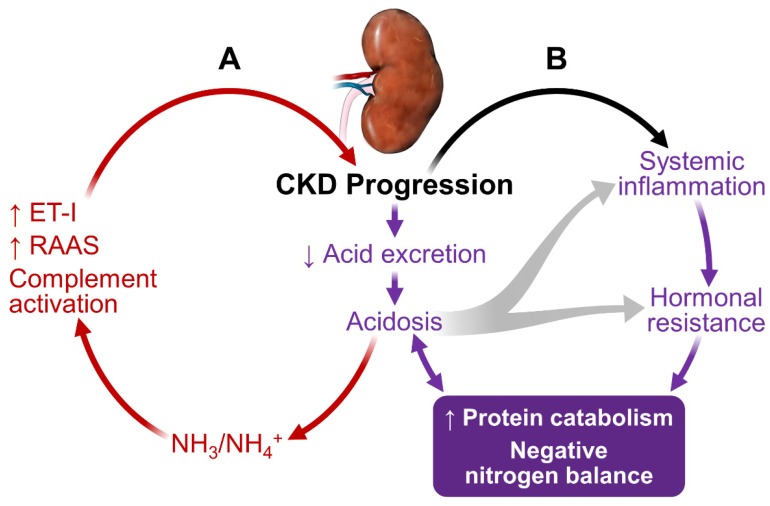Figure 1.
Interconnection of CKD progression with metabolic acidosis, inflammation, hormonal resistance and protein catabolism. (A) Kidney dysfunction limits proton (H+) excretion, resulting in a systemic metabolic acidosis. The acidosis causes activation of complement systems, renin angiotensin aldosterone systems and endothelin-1. These acidosis-mediated effects cause CKD progression, forming a viscous cycle; (B) Acidosis promotes inflammation and tissue resistance to multiple anabolic hormones and simultaneously enhances activity of catabolic corticosteroids. Protein catabolism generates acidic products, contributing to acidosis in the setting of CKD and ESRD. Collectively, these abnormalities give rise to a state of protein catabolism, causing sustained negative nitrogen balance, leading to muscle wasting.

